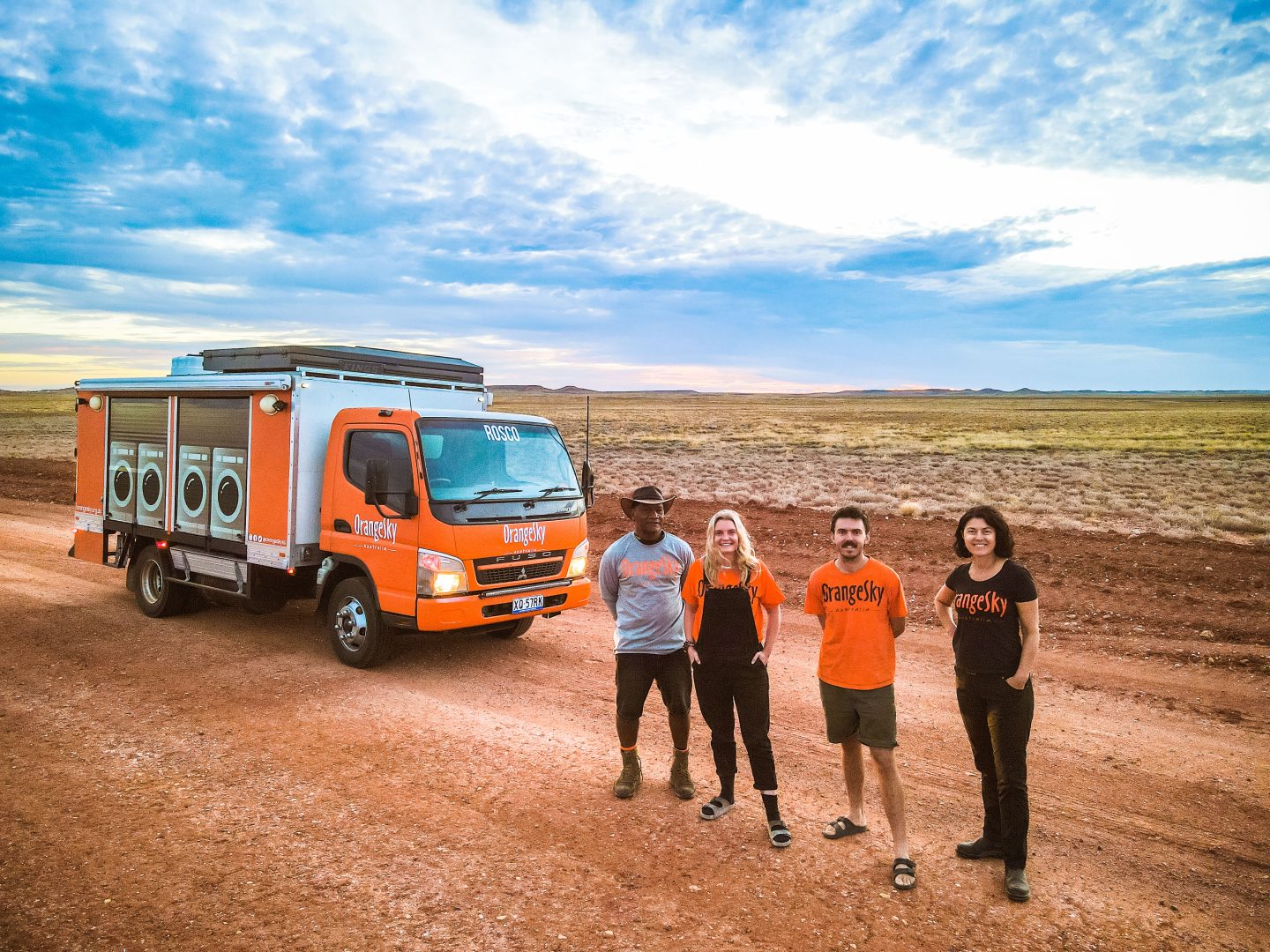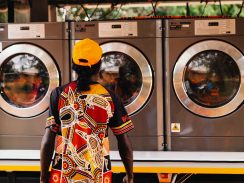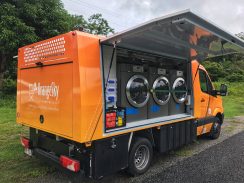Orange Sky Australia would like to acknowledge Aboriginal and Torres Strait Islander people as the Traditional Custodians of this nation and the lands in which we operate. We respect and honour elders past, present and future. Orange Sky is committed to working alongside First Peoples to create a positive future together.
Orange Sky established its first remote community service with a mobile laundry facility in Lockhart River, Queensland in 2017, after attending a health conference where concerns around rheumatic heart disease were raised. Fast forward several years and remote services are growing fast and responding to extraordinary demand.
First Nations people, particularly those living in remote areas, navigate significant challenges related to suitable housing. Issues of overcrowding and limited access to health hardware, such as washing machines, as well as lower rates of employment create additional challenges for First Nations people and intersect with the wider context of historical colonisation, systemic discrimination, and shifts in cultural identity.
Challenges related to overcrowded housing, access to washing machines and appropriate health care may contribute to preventable health conditions like respiratory, eye, ear, and skin diseases. Research has shown nearly half of First Nations children in remote communities suffer from impetigo, and up to one-third experience scabies- both are preventable.
Furthermore, from 2017-2022, First Nations people accounted for 92% of acute rheumatic fever cases, with a 50% increase in rheumatic heart disease incidence. These rates are particularly high in the Northern Territory, significantly exceeding those of non-Indigenous Australians and ranking among the highest globally.
More broadly, addressing inequities between First Nations and non-Indigenous peoples aligns with broader global efforts, such as the United Nations Sustainable Development Goal 10, ‘Reduce inequality within and among countries’.
Orange Sky’s remote service model was developed through extensive engagement with remote communities and is informed by the United Nations Declaration on the Rights of Indigenous Peoples and indigenous perspectives of wellbeing and traditional knowledge systems. The model emphasises self-determination, local decision-making, and respectful, authentic relationships. A key aspect is partnering with trusted local organisations, particularly community-controlled or community-led entities.
These partnerships ensure community involvement in decision-making and collaborative service delivery. Our partner organisations provide meaningful employment opportunities and local delivery of the service, while Orange Sky is responsible for asset provision and stock, maintenance, training and service support.
The service evolution highlights the importance of addressing skin disease within the broader context of community health and wellbeing. While skin disease is a smaller contributor to the overall disease burden compared to injuries and cancer, Orange Sky’s services play a crucial role in improving physical, social, and emotional wellbeing, and providing employment opportunities. These services also act as a vital linkage tool within the community.
In summary, enhancing health and wellbeing outcomes for and with First Nations peoples requires a comprehensive approach that incorporates local engagement, respect for cultural identity, and targeted, culturally appropriate service delivery. Orange Sky’s model exemplifies such an approach, fostering partnerships and community involvement to enhance health and wellbeing outcomes.







